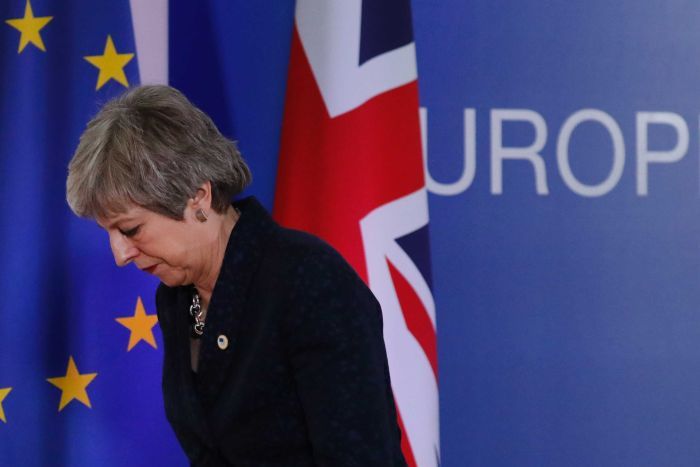British lawmakers rejected eight non-binding motions on alternatives to the EU withdrawal deal negotiated by Prime Minister Theresa May late Wednesday, compounding the uncertainty over Brexit.
Motions on a second Brexit referendum and a plan for Britain to stay in a customs union attracted the highest number of votes in favour, but were both narrowly defeated.
The lawmakers in the Commons, parliament’s elected main house, voted 295 to 268 against the idea of a new referendum, after 52 per cent opted to leave the EU in the 2016 public vote on Brexit.
A cross-party customs union motion was rejected by 272 to 264 votes.
Commons speaker John Bercow said following the “indicative” votes that a second stage of the process would still be held on Monday.
Speaking for the government, Brexit Secretary Stephen Barclay said the results proved there is “no simple way forward.”
Barclay said the rejection of alternatives showed that May’s deal remains “the best option.”
Opposition Labour lawmaker Hilary Benn tweeted that although no motion won a majority, those on the customs union and a second referendum “got more votes than the prime minister’s deal,” which was twice rejected.
“What is demonstrated is that the House of Commons is still deadlocked,” Benn told the BBC, advocating for another referendum to break the impasse.
May told lawmakers from her Conservative party earlier Wednesday that she will step down once a Brexit deal is finalized.
“I know there is a desire for a new approach – and new leadership – in the second phase of the Brexit negotiations – and I won’t stand in the way of that,” she told the party’s 1922 Committee of lawmakers, according to remarks released by Downing Street.
Many eurosceptic Conservatives had urged May to resign this week or set a date to step down in exchange for them backing her unpopular deal.
Home Secretary Sajid Javid, a leading contender to succeed May, praised her “dignity, honesty an bravery” in her speech on Wednesday.
“We must maintain trust in our democracy and deliver Brexit. I urge all MPs to back the deal so we can fulfill our promise to the British people,” Javid tweeted.
But Scottish National Party leader Nicola Sturgeon, who advocates remaining in the EU, suggested that May’s agreement to step down earlier than expected might make it harder for those fighting to soften or stop Brexit.
Adding to the pressure on May, Bercow earlier repeated his warning last week that he might not put any new motion on May’s Brexit deal to a vote unless it differs significantly from the one that lawmakers overwhelmingly rejected twice.
Many eurosceptics were angered by May’s decision to request a short delay to Brexit last week.
Several of the pro-Brexit rebels suggested on Wednesday that they are now prepared to back May’s deal, but other eurosceptics and Northern Ireland’s Democratic Unionist Party said they will still oppose it.
Britain must decide by April 12 if it is to request a longer-term Brexit extension. But if it does so, it would have to participate in the EU elections.





Comments are closed for this post.